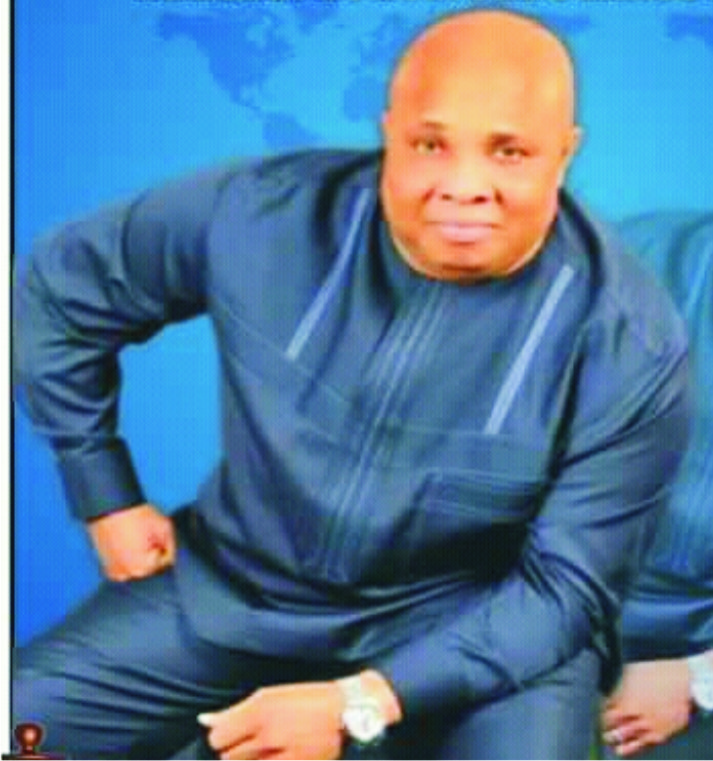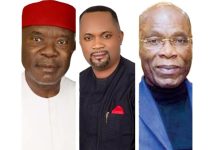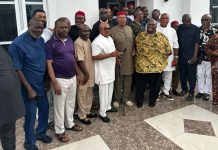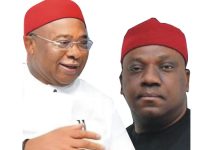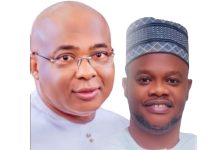The fate of Chief Martin Agbaso as National Chairman of the All Progressive Grand Alliance APGA will be decided in July as the Supreme Court gives its judgment on the legal tussle over the authentic National Chairman of the All Progressives Grand Alliance (APGA).
The APGA leadership has been a matter in the court since May 22, 2017, when an Enugu State High Court presided over by Justice Ozoemena, gave an order of mandamus, compelling the police and Independent National Electoral Commission, INEC, to recognize Chief Martin Agbaso as APGA National Chairman.
The High Court’s decision followed an application brought to it by the party’s Deputy Chairman in Enugu State, Mike Alioke, asking the Court for an order of mandamus, compelling INEC to recognize the decision of APGA appointing Agbaso as the acting national chairman of the party.
Alioke had also pleaded with the court for a declaration that by section 4 of the Police Act, both the Inspector General of Police and the Enugu State Commissioner of Police are bound to ensure the compliance of the decision of APGA regarding the appointment of Agbaso as the acting national chairman of the party in order to forestall a breakdown of law and order. He had also prayed for an order prohibiting INEC and its privies from recognizing or accepting any other person as the national chairman of APGA other than the Agbaso as submitted to it by the party.
Dissatisfied with the judgment, Victor Oye headed for the appellate court to challenge the order of Justice A. R. Ozoemena of the Enugu State High Court, and the Appeal Court granted him his request.
Challenging the Appeal Court decision at the Supreme Court yesterday, lead counsel for Agbaso, Paul Erokoro (SAN), argued that the appellant at the lower Court (Oye) was not part of the matter at the Court, adding that coming to appeal the decision of the High Court at the Appeal as an interested party requires him to first seek and obtain Leave of Court before appealing the matter.
The appellant, who anchored his case on the matter that the requirements were not met by the respondent as contained in Section 24 (3) of the Nigerian constitution, asked the Supreme Court to set aside the judgment of the lower of court.
“The appellant at the lower Court was not a party to the matter at the trial court. That being the case, coming to appeal as an interested party requires him first to seek and obtain leave of court before appealing. He only obtained the leave after he had filed the case at the appeal court.
“It is on the bases of not meeting the constitutional requirement. The counsel impliedly abandoned the relief seeking for a deeming Order and the Court in its
ruling did not also grant the order, since it was abandoned. The ruling of the lower court did not put into consideration the provision of the law that leave must first be sought and obtained before appealing as an interested party”, Agbaso’s counsel argued.
Raising a preliminary objection to the submissions of Agbaso’s counsel, counsel for Vicor Oye, Chief Wole Olanipekun (SAN), argued that the appeal at the Supreme Court is against the exercise of discretions by the lower court, adding that it has become an academic exercise.
After hearing the arguments and submissions from both parties, the presiding judge, Justice Rhode Vivour, fixed July 13 for the Supreme Court judgment on the matter.

